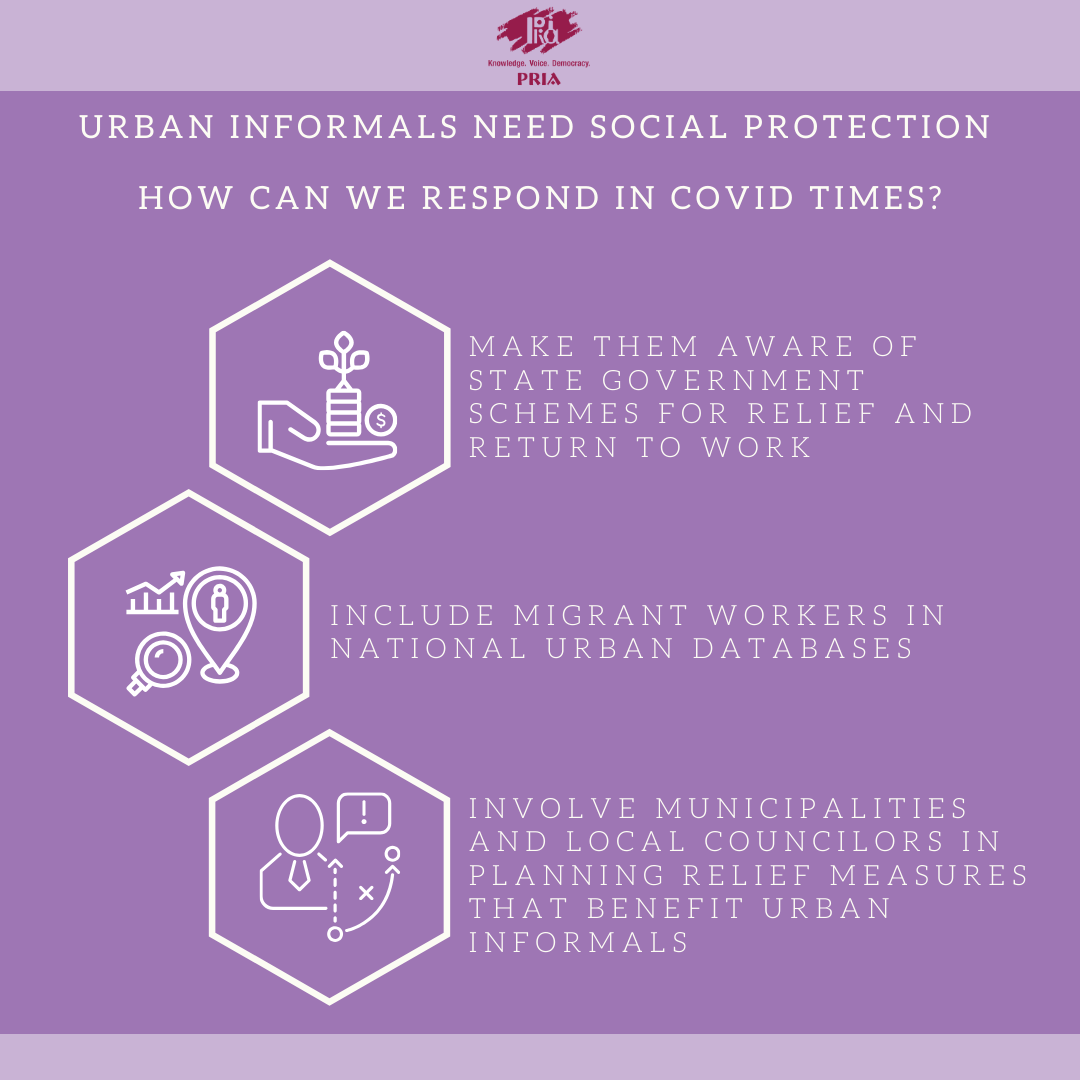| Date 27-Apr-2020 to 27-Apr-2020 |
Location Time: 11:00 am - 01:00 pm |
Format Online |
Informality in urban India is both occupational and habitational. Close to 81 million people in urban India live below the poverty line and a large number of them live in informal settlements. Using the census data of 2011 and NSSO migration data of 2011, it is estimated that the inter-state migrant population is around 68 million households of whom 33 percent are workers. A majority of them are daily, weekly, or monthly wage earners, and fall in the category of poor or vulnerable.
It is now evident that the global pandemic COVID-19 has already impacted millions of urban poor and informal workers. An International Labour Organization (ILO) report published earlier this month had dire estimates for India’s employment scenario. With 90 per cent of India’s 500-million workforce engaged in the informal sector, the ILO report estimated that almost 400 million workers could slide deeper into poverty. Needless to say, it would include the informal workers in the urban areas.
The Government of India and various state governments have announced some interim measures for the urban poor and informals to mitigate this sudden social and economic shock. These measures include cash transfers, provisioning of food grains, supply of gas cylinders, etc. However, as the pandemic situation demands extended period of lockdown, the urban informals would require a revitalised social protection programme to help them not to slip back into poverty. Such programme must take into account the diverse needs of women and men as well as especially vulnerable population like single women, elderly people, children, and people with disabilities, among others.
As envisaged in 74th Constitutional Amendment Act (Part IX A) of the Indian Constitution, the role of elected Mayors and Councillors are paramount in soliciting citizen engagement, compliance, and contribution to address pandemic induced lockdown and its social and economic consequences on the urban informals. Of the 18 items listed in the XII Schedule as the primary responsibilities of Urban Local Bodies, three items particularly, viz. (i) Planning for economic and social development; (ii) Urban poverty alleviation; and (iii) Safeguarding the interests of the weaker sections of society, including the physically handicapped and mentally unsound; assume even greater importance at the time of pandemic and afterwards.
In this background, PRIA International Academy (PIA) and All India Institute of Local Self Government (AIILSG) jointly organised a Webinar on “Role of ULBs in Promoting Social Protection for Urban Informals Affected by COVID-19 Pandemic”. The webinar was held on Monday, 27 April 2020 between 11.00 am and 01.00 pm.
The webinar deliberated on the following questions:

The moderator was the webinar was Dr. Kaustuv Kanti Bandyopadhyay, Director, PRIA International Academy (PIA), New Delhi.
The panellists included:
The commenters included: